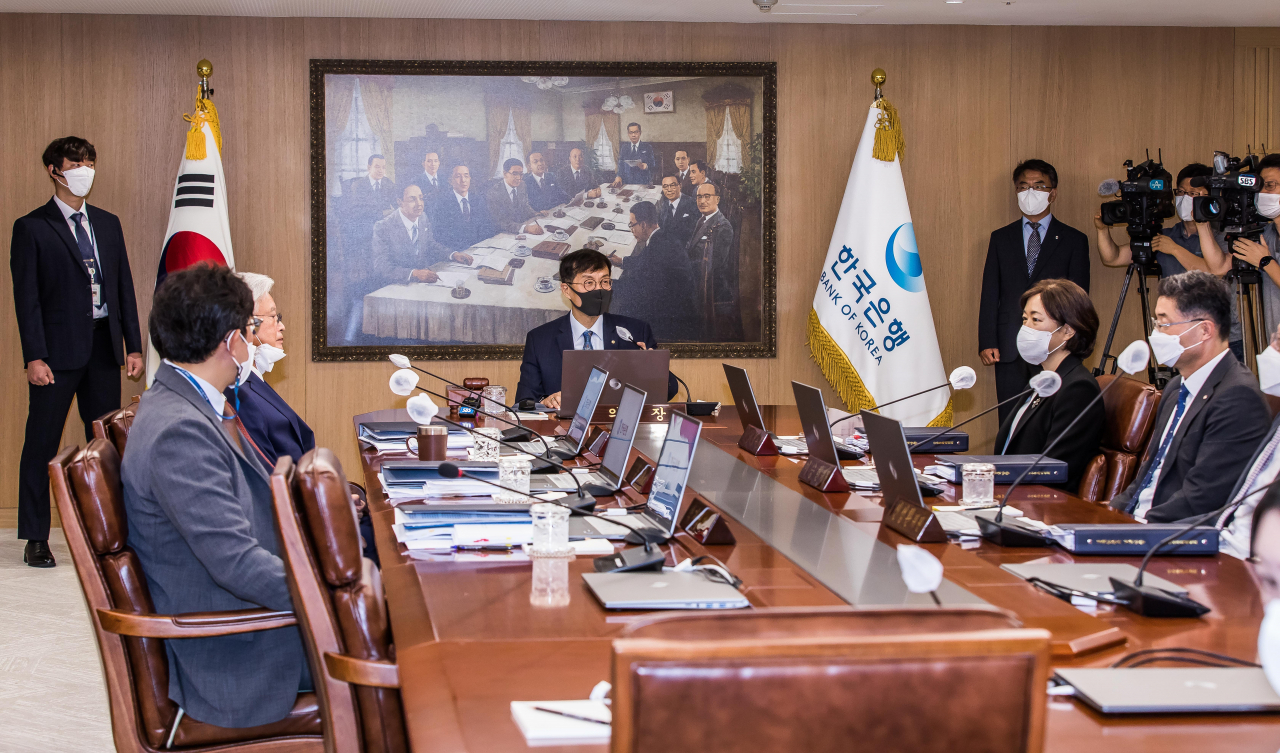BOK to maintain monetary tightening stance amid high inflation
By YonhapPublished : Oct. 7, 2022 - 10:06

South Korea's central bank said Friday it will maintain its position to raise interest rates going forward to combat inflation that is expected to stay in the 5-6 percent range "for a considerable period of time."
In a report submitted to lawmakers for a parliamentary audit, the Bank of Korea (BOK) voiced concerns a sharp slide of the local currency against the US dollar will likely apply upward pressure on prices.
"It is of urgent need to keep a lid on inflation expectations and prevent high inflation from getting entrenched," the report said. "We will keep our stance to raise rates going forward."
It is in line with the BOK's repeated position that it will keep raising the cost of borrowing to rein in inflation that has been driven up amid high energy and commodity prices.
The country's consumer prices, a key gauge of inflation, grew 5.6 percent on-year in September, slowing from a 5.7 percent rise in August, thanks in part to eased price hikes of crude oil amid worries over a global economic slowdown.
Experts say inflation could be elevated anytime depending on the oil and energy price trajectory.
The BOK has hiked its policy rate seven times -- a combined 2 percentage points -- since August last year. The hikes include an unprecedented 0.5 percentage-point increase in July, followed by a 0.25 percentage-point rise in August.
The central bank is set to hold a rate-setting meeting Wednesday, which will be one of two remaining such meetings until the end of this year. Observers expect another rate hike, though they are divided over how sharp the rise would be.
"How much, when and in what path the policy rate will be raised will be determined by closely monitoring the impact of changing external conditions, such as monetary policies of major countries and developments linked to the war in Ukraine on prices, growth trends, and financial and foreign exchange markets," the BOK said.
The BOK voiced worries about mounting market volatility, including the won's recent dive against the dollar, saying it is ready to take "market stabilization measures" in a timely manner.
The won's descent has emerged as a major cause for concern as it could increase upward pressure on inflation by making imports more expensive.
"We will beef up market monitoring and stabilization efforts since volatility in the foreign exchange market has intensified," the BOK said.
In a related move, the BOK said it will maintain a sufficient amount of foreign reserves in order to effectively respond to market swings and continue to seek other necessary measures, including the reopening of a won-dollar currency swap line with the United States for which both sides will continue to talk.
According to BOK data, the country's foreign reserves came to $416.77 billion as of end-September, down $19.66 billion from the previous month. This marked the fastest pace of an on-month decline since October 2008.
The BOK said the decline was due in part to its dollar selling to stem an excessive slide of the won against the dollar. It dismissed worries that the amount might not be sufficient to defend the won down the road and brace for a financial crisis. (Yonhap)








![[Graphic News] More Koreans say they plan long-distance trips this year](http://res.heraldm.com/phpwas/restmb_idxmake.php?idx=644&simg=/content/image/2024/04/17/20240417050828_0.gif&u=)
![[KH Explains] Hyundai's full hybrid edge to pay off amid slow transition to pure EVs](http://res.heraldm.com/phpwas/restmb_idxmake.php?idx=644&simg=/content/image/2024/04/18/20240418050645_0.jpg&u=20240419100350)







![[KH Explains] Hyundai's full hybrid edge to pay off amid slow transition to pure EVs](http://res.heraldm.com/phpwas/restmb_idxmake.php?idx=652&simg=/content/image/2024/04/18/20240418050645_0.jpg&u=20240419100350)

